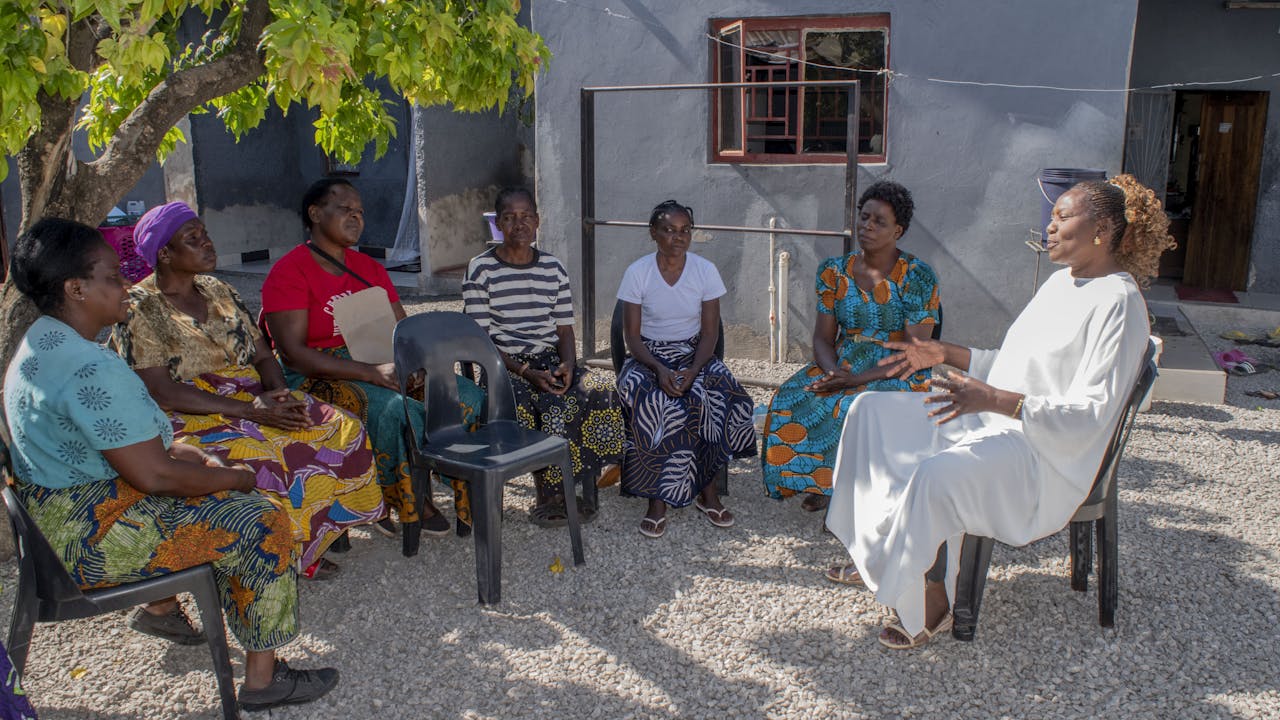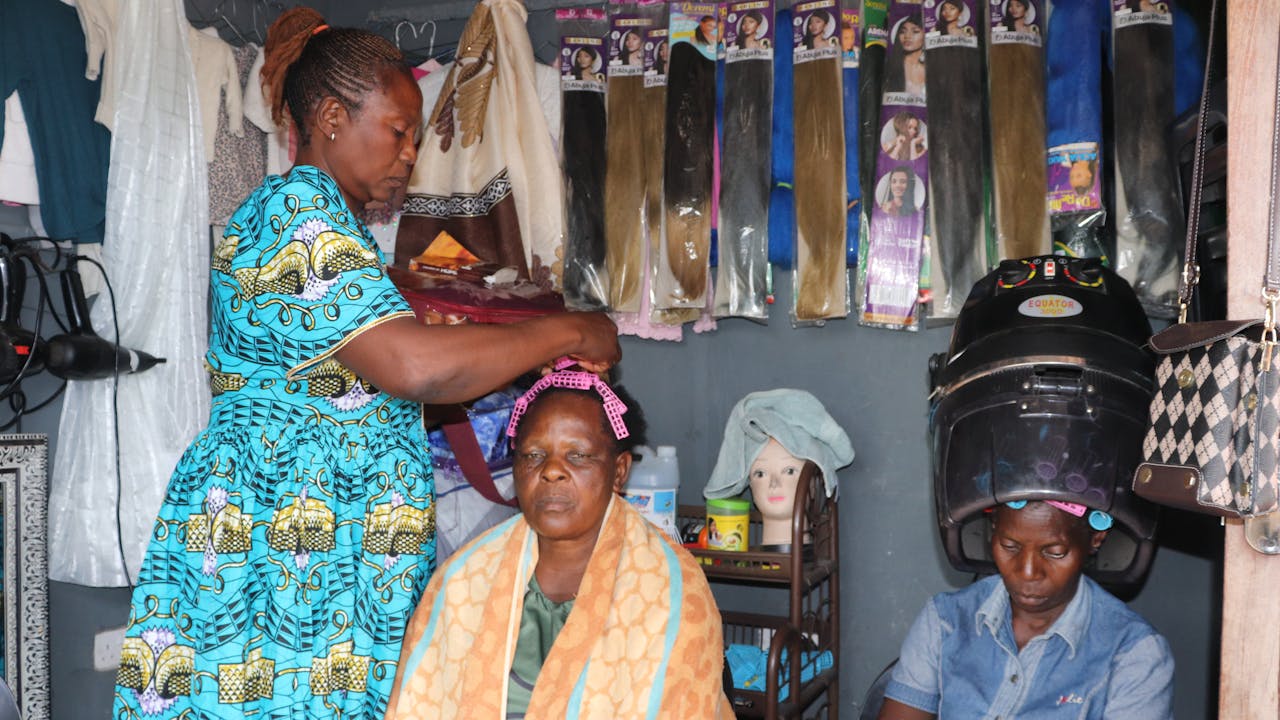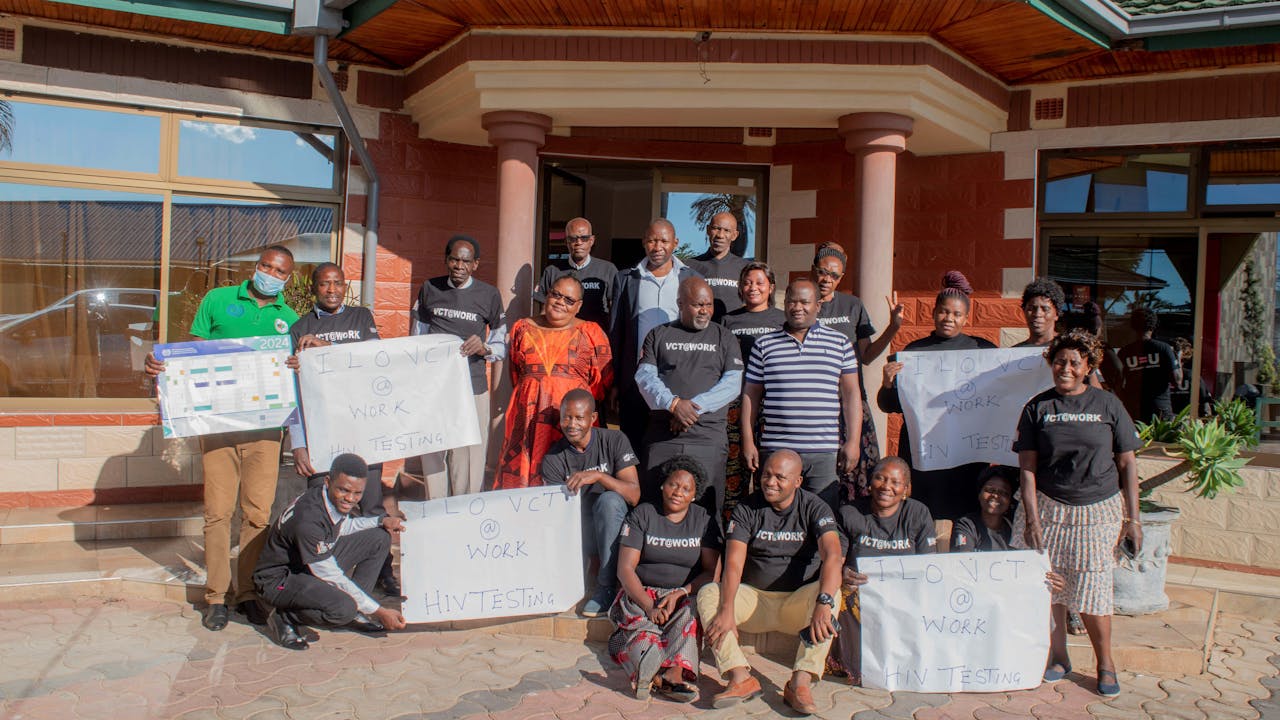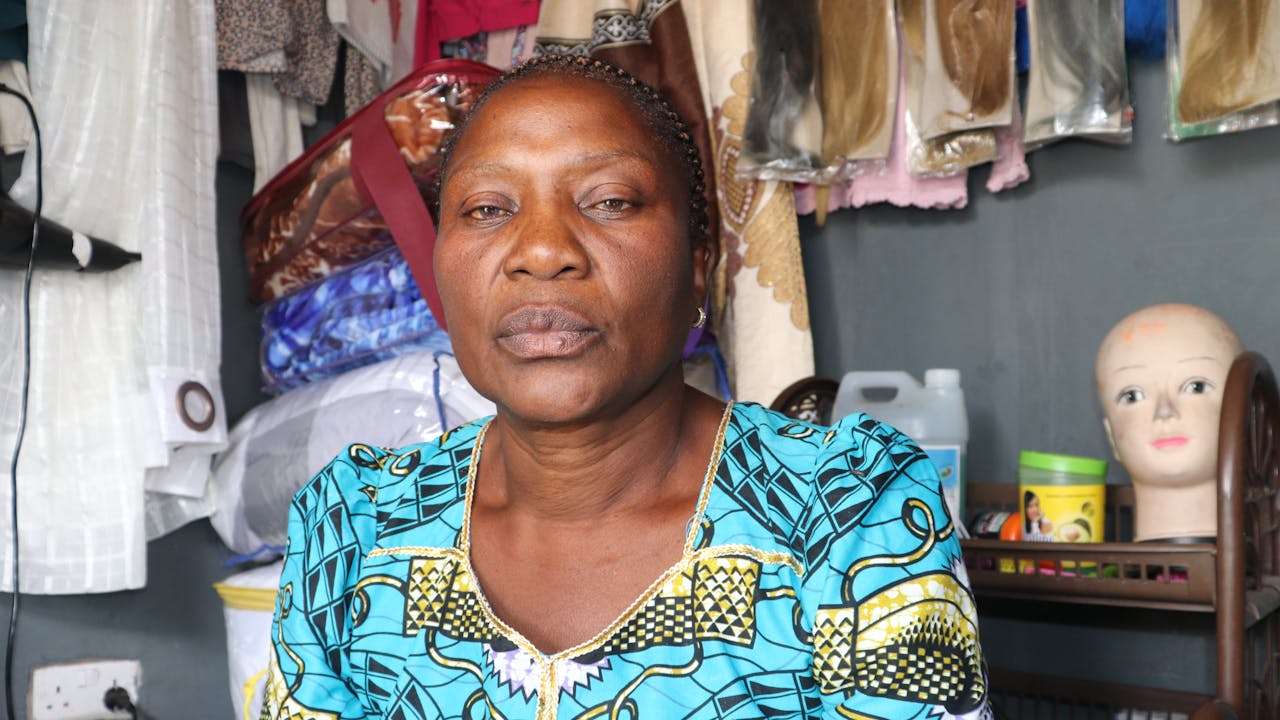Before I realized I was HIV positive, I didn't know that my husband was also carrying the virus. He kept falling sick. We thought it was malaria or just a cough. At the time, we didn’t know about HIV. He died in 2005. Several years later I also started to get sick. I was having stomach pains and headaches. Then one of my sons died of HIV/AIDS. That's when I decided to go and get tested at the clinic.
It’s not easy losing a husband and being left HIV positive. My extended family laughed at me, saying that my husband had left me with nothing and it served me right for having had so many children year after year. It was a really bad time and I worried how I would provide for my children.
My mother passed away shortly afterwards, and she left me her little house. Before she died she told me I would need to fight for my own future. Her house is what helped me to survive. I rented a room out, and I also started a business selling second-hand clothes and charcoal. Here in our country you can’t do without charcoal. Everyone uses it.
It’s not easy losing a husband and being left HIV positive.
Through a friend, I also heard about an opportunity to volunteer at the local medical clinic as a child health promoter. I started working there a few times a week and they provided me with some financial support.
There, I met other women who had lost their husbands to the same virus. The clinic encouraged us to form a support group called Musayope, which means ‘do not fear’. Eventually, the sister in charge at the clinic suggested we create support groups in our own communities to persuade others to join and help them overcome the stigma associated with HIV.
At the time, people were saying that HIV-positive people should not share a cup or spoon. They thought that maybe the virus was passed through sharing the same blanket or eating the same food. I realized I didn’t want other people in my community to go through what I went through.

It makes a difference when our Twafwilishanye HIV community support group meets. We teach one another that even if you are sick, that’s not the end of you. (2024)
© Henry SokoI started a community support group called Twafwilishanye, which means ‘let’s help each other’. We bring people together and encourage them to get tested before they feel sick. It is better to do this early and take the antiretroviral therapy (ART) medication straight away. We teach one another that even if you are sick, that’s not the end of you.
I have become an example for them – how I’d been in the past and how I was after I was diagnosed and started taking the medication. They see now that I am healthy, I am working, I am eating. I am able to take my children to school. That’s why they come for support. People say, “Ah, you can be just like Regina – she’s able to do everything on her own.”
I have become an example for others in our HIV support group. They see that I am healthy and I am working.
When we started over 15 years ago there were 10 of us in the Twafwilishanye group. Now we have reached 40 to 50 members. It makes a difference when you meet and you share ideas or problems. We encourage one another to take our medication on time.
We also make small financial contributions to the group to help each other in times of need. Recently, when one of our members fell sick and was admitted to hospital, we met her transport costs and provided food for her family while she was hospitalized.

Funds from the ILO through the Network of Zambian People Living with HIV/AIDS helped me buy the necessary equipment and start a hair salon. My clients are happy with my work. (2024)
© ILO/OIT Allan MulengaWhen the COVID-19 pandemic hit, like everyone else my business was badly affected.
Then people from the International Labour Organization (ILO) came to our community group and told us they were going to help us. They provided us with funds through the Network of Zambian People Living with HIV/AIDS to boost our businesses. They also provided three of us from the group with business training and afterwards we shared what we learned with other group members. We learned how to run a business, as well as how to budget and expand our businesses.
After receiving the money, I bought more second-hand clothes and charcoal and began selling cornmeal. I even got a passport and went to Botswana to purchase quality blankets, which I sold to a local guesthouse and later to South Africa to buy school uniforms for resale. Then, after the money multiplied, I decided to open a hair salon. I’ve always had an entrepreneurial spirit and am constantly looking for new opportunities – I think I got this from my father who was also an entrepreneur!

I recently participated at an ILO training to promote voluntary HIV counselling and testing at work (VCT@WORK) to people in my community. (2024)
© ILO/OIT Allan MulengaRecently, the ILO invited me to train and become a community champion to help counsel people in informal and formal workplaces about HIV. I also distribute HIV self-tests.
My aim is to convince others to get tested. I say to them that when you are tested, you know where you stand, and you can determine a way forward. What’s important is to share this information and then listen.
Like I do with the support group, I use myself as an example. For instance, people think you can’t be on ART medication and travel. But I show others it’s possible. I take extra supplies with me, I never miss the scheduled time to take the treatment, and this has made me strong. Even my complexion is smooth – people don’t believe me when I say I am 60 years old!
Through my own experience, I have seen how having an income and running a successful business increases people’s respect and reduces HIV stigma and discrimination.
When you have a low economic status, people generally don’t respect you. And having HIV makes it worse. Through my own experience, I have seen how having an income and running a successful business increases people’s respect and reduces HIV stigma and discrimination.
I am proud of what I have achieved and of becoming a champion in my community to support people living with HIV. In the future, I hope to open an orphanage for children living with HIV and who are having ART treatment.

I am proud of being a champion in my community to reduce HIV stigma and discrimination. (2024)
© ILO/OIT Allan Mulenga